Detoxification of the body based on the principles of Ayurveda
When undigested residues remain in the gastrointestinal tract, they begin to rot and release poisons that are distributed throughout the body through the bloodstream.

Below you will find valuable Ayurvedic lifestyle and nutrition tips to help clear accumulated toxins and prevent them from re-accumulating.
Living in harmony with natural energies
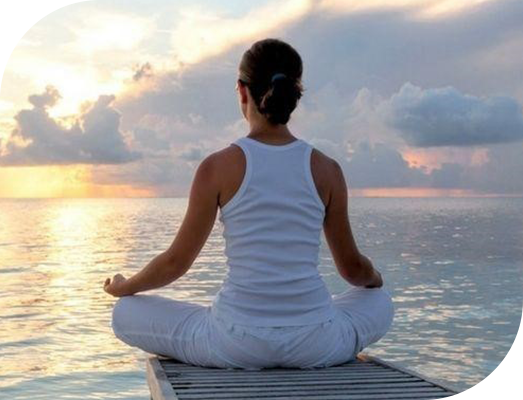
The activity of the organism, in turn, depends on the processes and cycles in nature – alternation of day and night, seasons and climatic changes.
Therefore, a person’s daily regimen should follow some natural rules:
• The day should start with the sunrise – around 6.30-7 am.
• Digestion is weak in the morning and evening, so breakfast and dinner should be light.
• During the main meal at lunch, more and heavier food can be digested and absorbed.
Proper nutrition according to Ayurveda
• The types of food and products suitable for the given person;
• The right time for food intake;
• The combinations of tastes and the amount of food taken.
All this depends on the person’s Dosha, which must be determined by a specialist.
However, there are also several principles that must be respected by everyone, namely:

• A person should eat only when they are hungry – otherwise the digestion that has not yet been completed from the previous meal is loaded.
• If the meal includes more meat or protein, the intervals between meals should be longer, but the amount should also be larger.
• If thermally processed vegetables predominate – boiled, baked or steamed – the intake should be more frequent and the quantities should be smaller.
• Meal time is also important. If the dinner is after 19-20 o’clock, when Agni has significantly subsided, the digestion of food cannot proceed normally.
• Raw vegetables require more energy for processing, which is why their intake is more suitable for summer. Dairy products and meat are suitable for winter.
• Food should be freshly prepared and served warm, because warm food is easier to digest.
• The combination of foods is also important for protecting against toxins. Some of them are incompatible and should not be consumed at the same time, such as milk with fish or fruit.
For Ayurveda alcohol is one of the foods of ignorance, but moderate consumption is still allowed – without getting drunk – 3-4 times a week.
The right way to drink water
Water is the environment in which biochemical processes take place – nutrients are dissolved in it, metabolism is ensured and waste products are removed.
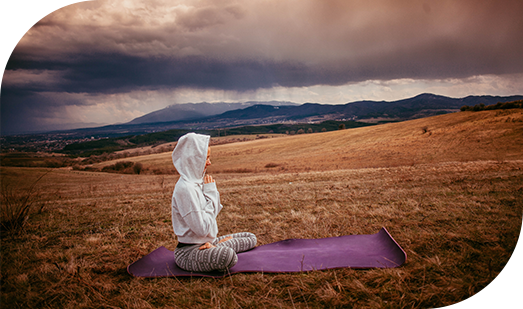
Hygiene of the body and thoughts
No less important, however, is the maintenance of a clear consciousness, free from bad thoughts.
Ayurveda advises to calm the mind with positive thoughts in the evening before sleep, so that the next day can start with positive energy, with a clean body and a “clean” mind.
• A person should express their emotions openly and unambiguously, and not hide and keep them to themself.
• Physical activities are also important for the release of toxins. According to one’s ability, one should do regular exercises for toning, energy, strength and stamina.
The deep breathing in these exercises is beneficial to the energy channels and helps to clear them when they are blocked by accumulated toxins.
How to facilitate the elimination of toxins?
Here are the ways to stimulate the natural release of toxic accumulations:
Periodic fasting
This is useful for eliminating digestive and excretory disorders and improving metabolism.
Laxative teas also help flush out toxins and cleanse the colon.


Medicinal and purifying herbs
• Sena
• Basil
• Carnation
• Lemon balm
• Linseed
• Ginger root
• Triphala
• Fennel seeds
• Aloe and others
These herbs can be taken in the form of teas, infusions, tinctures or supplements to various meals and drinks.
Sunbathing
However, heating in direct sunlight should not last more than 20 minutes, because solar radiation can cause side effects.
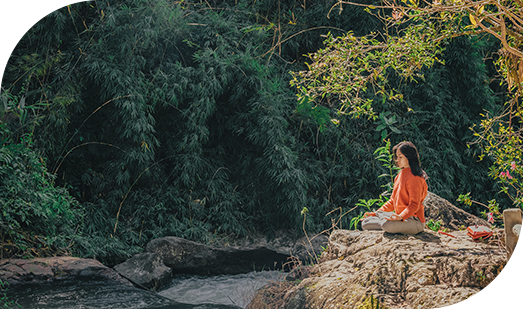
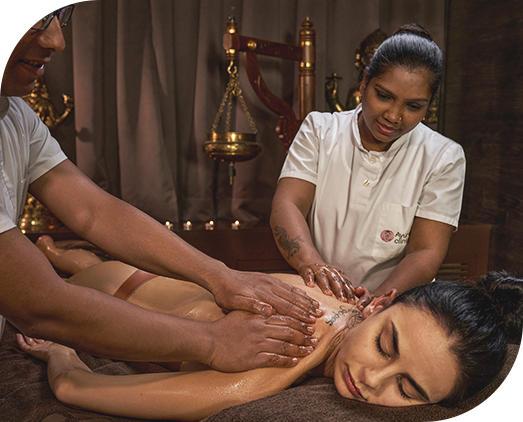
Steam bath, massages and dry sauna
They are aimed at cleansing the skin and can be done in combination with massages.
Therapeutic oils with light or deep penetration are used in the massages, which help to free the tissues from toxins.
Abhyangam therapy in Ayurveda, for example, is a traditional oil massage that:
• It helps with the overall health of the body and mind
• Helps to remove energy blockages in the body.
• Acts as a preparatory stage for the Panchakarma procedures.
Also healthy are dry saunas, which cause heavy sweating and the excretion of more toxins with the sweat.
Ayurvedic rules for health protection
Medical examinations and consultations
Each organism is unique and its treatment is strictly personal.
For the same disease, what is prescribed for one may be inappropriate or even harmful for another. Therefore, the doctor’s instructions must be strictly followed.
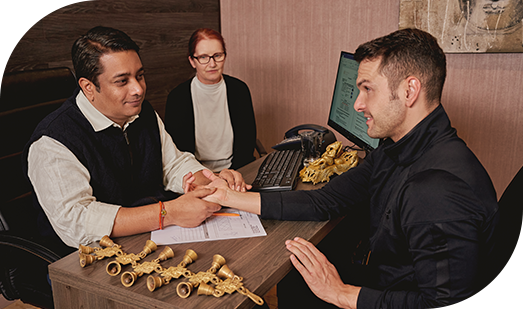
Diagnostic methods in Ayurveda
First of all, it consists of a direct examination of:

